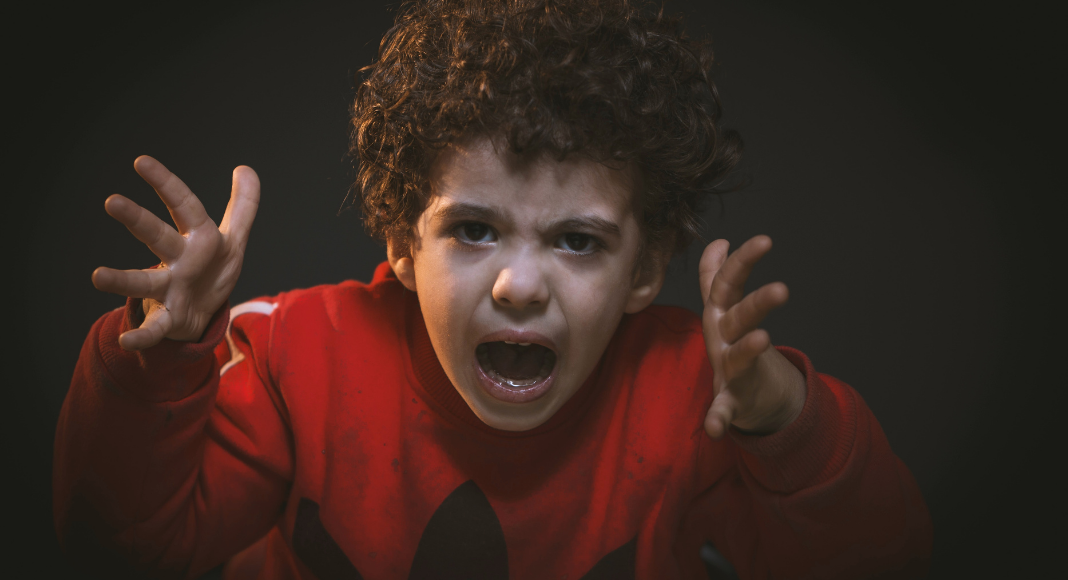 O: “I HATE you!”
O: “I HATE you!”
Me: “WHAT?!”
O: “I hate you.” (more subtly and softly)
Me: “You hate me?”
O: “Yes.” (sounding regretful)
Me: “Well, that’s unfortunate because I love you.”
O: “I wuv you too.”
A dagger to my heart. That’s the best way to describe how my son made me feel that night. Never have I wanted to laugh and cry so much at the same time.
And then came all of my simultaneous thoughts:
[He’s only three years of age! We never talk like that in this house! I can’t imagine he even knows what that means! Yet, he used it in the correct context…and emphasized the hurtful word…and looked me straight in the eyes when he said it. What could make my sweet baby boy so incredibly mad that he has to proclaim his hate for me? My two daughters — older than him and with attitudes — have never even shouted this statement to me. (At least not yet). I don’t recall ever yelling this anger-filled response to my own parents! What did I do to receive such backlash when I do everything for this child? At least it ended on a good note.]
If you’ve heard these words from your own child(ren), you know how hurtful it can be…especially when we know how much we do for them. I mean, we would literally die for them and this is how they treat us?! But we must take it with a grain of salt. We must not take it personally. They are finding their identity. They are figuring out whether they are a monster or empathizer. The fact that my son went from one extreme to the other in the same short conversation shows his true choice in the matter. He is a lover, not a hater, but he can’t be sure of this until he tests the waters. And when they decide to test those waters, we need to respond with love, not with matching hate and frustration. Even if your child is not as quick to switch feelings and continues to throw out the hate word or it’s a relentless teenager that won’t give you the satisfaction of admitting they’re in the wrong, it is up to us as adults to be the adult. Stay calm, take a deep breath, walk away if needed, respond with compassion, find out what’s bothering them. Even asking them to change the word may show what they need. “I hate you” could actually mean “I need you,” “I’m unhappy with you in this moment,” “I feel like you don’t understand me” or “I’m frustrated and overwhelmed.”
Will I hear this phrase again over the next fifteen years as my three kids age into adults? Probably. I hope not, but the odds are not in my favor. For any future moment I hear this unpleasant term hollered in my direction by my own children I will remember that I have truly earned my rite of passage. I have officially upset my kids enough to know that I’m doing something right. I am MOM, hear me roar!!



















